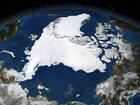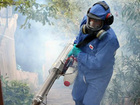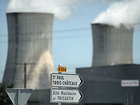NASA transmitted the first song to be broadcast from Mars on Tuesday, by Grammy-winning U.S. musician will.i.am, as part of efforts to inspire young people to get interested in science.
"Reach for the Stars" was then beamed back by the Curiosity rover, which landed on the surface of the Red Planet earlier this month, to NASA's Jet Propulsion Laboratory (JPL) in Pasadena, California.
 Full Story
Full Story
Having a smaller family is a springboard for giving future generations the chance of greater prosperity, according to a Swedish study published on Wednesday.
Providing scientific support to what is anecdotal evidence, it says that in an advanced industrialized society, having fewer offspring means children benefit from greater parental investment and from inherited capital.
 Full Story
Full Story
Thousands of Morocco's unemployed slum-dwellers head to the Atlantic coast every morning to scrape a living as illegal mussel pickers. But experts say they threaten the health of the marine ecosystem.
The stretch of coast between Rabat and Casablanca, Morocco's economic capital renowned for its sprawling slums, or "bidonvilles," is the most popular destination for these unlicensed fishermen, who flock to the area at low tide.
 Full Story
Full Story
Scientists have found three well preserved ancient insects frozen in amber — and time — in what is Earth's oldest bug trap.
The discoveries of amber-encased insects in Italy may sound like something out of "Jurassic Park" but these bugs are even older than that. They are about 230 million years old, which puts them in the Triassic time period, and about 100 million years older than what had been the previously known oldest critters trapped in fossilized tree resin, or amber.
 Full Story
Full Story
The sea ice in the Arctic Ocean has melted to its smallest point ever in a milestone that may show that worst-case forecasts on climate change are coming true, U.S. scientists said Monday.
The extent of ice observed on Sunday broke a record set in 2007 and will likely melt further with several weeks of summer still to come, according to data from the National Snow and Ice Data Center and the NASA space agency.
 Full Story
Full Story
Some aliens arrived as stowaways. Others were brought in deliberately, for fun or profit. And others were so tiny that nobody noticed them until way too late.
They became a nightmare. They killed and devoured natives stole their homes, sickened them with pathogens.
 Full Story
Full Story
The challenges of climate change and protecting one of the world's last pristine ocean environments are set to dominate this week's Pacific Islands Forum (PIF) in the Cook Islands.
But the expected presence of U.S. Secretary of State Hillary Clinton will ensure geo-political concerns, particularly China's growing influence in the South Pacific, are also high on the agenda at the regional summit.
 Full Story
Full Story
French Greens reacted angrily on Monday after a government minister described nuclear power as the "energy of the future," casting doubt on a commitment to slash the country's number of reactors.
The Greens, minority partners in France's Socialist-led administration, lashed out at Industrial Recovery Minister Arnaud Montebourg for comments in which he lauded France's nuclear industry as a "tremendous asset."
 Full Story
Full Story
A jolt of support from a popular Web cartoonist has re-energized a decades-long effort to restore a decrepit, 110-year-old laboratory once used by Nikola Tesla, a visionary scientist who was a rival of Thomas Edison and imagined a world of free electricity.
In little more than a week, tens of thousands of donors from more than 100 countries have kicked in more than $1 million through a social media fundraising website to pay for the restoration of Tesla's Wardenclyffe laboratory, located about 65 miles (105 kilometers) east of New York City. A small band of followers who have struggled to establish a science and research museum and learning center in Tesla's honor are giddy with delight about the lightning-quick response they have received.
 Full Story
Full Story
More than 40 years after Neil Armstrong landed on the moon, humans continue to push the frontiers of space exploration but missions are being tempered by costs, a trend that concerned the astronaut.
The blank check from government that financed adventures in the Cold War-era is no longer available, with today's missions depending more on the private sector and international cooperation -- often because of budget considerations.
 Full Story
Full Story



